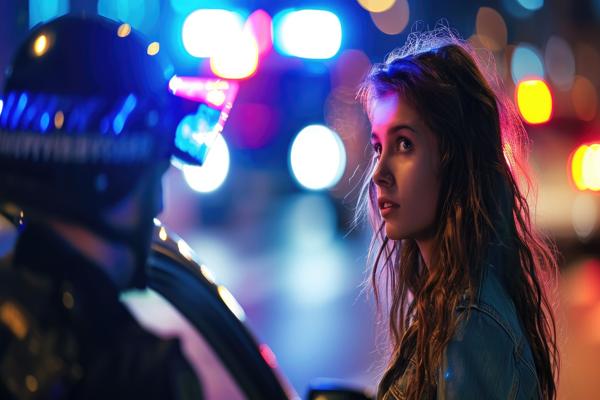
The stakes are high for Texas CDL drivers facing DWI charges
Commercial truck drivers in Texas are required to hold a commercial driver’s license (CDL) to perform their job duties. That’s why a driving while intoxicated (DWI) conviction can have such serious consequences. But just how serious is a DWI conviction? What impact does it have on a CDL driver? And what options are available for truck drivers in Texas in such situations? Here are the details you should know.
Professional drivers are held to a high standard
A CDL driver is held to a higher standard of care than a regular driver in Texas. For example, the legal blood alcohol content (BAC) limit for CDL holders is lower. Prosecutors don’t need much to try to convict you, but there are specific requirements that must be met.
- Lower BAC limit – CDL drivers can be charged with DWI if their BAC is 0.04% or higher, compared to 0.08% for regular drivers.
- Commercial vehicle operation – The lower limit applies if you are driving a commercial vehicle at the time of the arrest.
- Regular DWI rules still apply – Even if you are driving your personal vehicle, you can still be charged with DWI if your BAC is 0.08% or more.
- Chemical testing – Breath or blood test results are commonly used as evidence for DWI charges.
- Refusal to test – Refusing a chemical test leads to an automatic CDL suspension under Texas's implied consent laws.
- Lawful arrest – Police must have probable cause to stop, test, and arrest you for DWI.
These requirements make CDL cases hard to defend, but not impossible. An experienced DWI defense lawyer can challenge test results, the legality of the stop, or the handling of evidence. Every detail matters when your career is on the line.
What is the penalty for a DWI if you have a CDL?
The penalties for CDL drivers are much harsher than those for regular drivers. Even a first offense can take you off the road and threaten your ability to earn a living. Texas law is clear about what happens after a conviction.
- First offense – A CDL is suspended for at least one year, even if you were driving your personal vehicle at the time of arrest.
- Hazardous materials – If you were carrying hazardous materials, the suspension is at least three years.
- Fines and court costs – You may face thousands of dollars in fines, as well as increased insurance rates.
- Jail time – Depending on the circumstances, you may be required to spend time in jail.
- Permanent record – A DWI stays on your criminal and driving record.
- Employment loss – Many trucking companies refuse to hire drivers with a DWI conviction.
These penalties illustrate how a single mistake can jeopardize a CDL career. Fighting the charge with the help of a skilled defense lawyer is critical. Protecting your license means protecting your future.
What evidence is necessary for a DWI conviction in Texas?
To convict a CDL driver of DWI in Texas, prosecutors must present solid evidence. This typically begins with a traffic stop. Officers must prove they had a legal reason to stop your vehicle, such as swerving or a traffic violation.
Evidence often includes field sobriety tests, chemical test results, dashcam footage, and officer testimony. A strong defense lawyer can review this evidence to see if your rights were violated, if evidence was obtained illegally, or if the evidence is unreliable. Many DWI cases fall apart when evidence is challenged in court.
Can CDL drivers in Texas drive a truck with a DWI conviction?
In most cases, the answer is no. If you are convicted of DWI, your CDL is automatically suspended. That means you cannot legally drive a commercial truck, even if you still have a regular driver’s license.
Some CDL drivers hope for special exemptions, but Texas does not allow a “hardship license” for commercial vehicles. Once your CDL is suspended, you cannot drive a truck until the suspension is lifted.
What if a CDL driver has a second DWI conviction?
A second DWI conviction is far more serious than the first. Under Texas law, CDL drivers who receive two DWI convictions often face a lifetime ban from holding a commercial license. That means you may never be able to work as a commercial truck driver ever again.
Courts and employers also treat second offenses much more harshly. Judges may impose longer jail sentences, higher fines, and stricter probation terms. Insurance companies often refuse to cover drivers with more than one conviction.
Because of these consequences, a second DWI is essentially career-ending. Fighting the charge with every legal option available is the only way to protect your CDL. An experienced DWI defense lawyer can help you build a strong legal case.
Are CDL drivers banned for life from driving due to a DWI conviction?
Not always. A first offense typically results in a temporary suspension, but a second offense can lead to a lifetime ban. However, Texas law allows some drivers to request reinstatement after ten years if they meet specific requirements.
The legal process can be complicated, confusing, and not guaranteed. A Texas criminal defense lawyer can explain whether reinstatement is possible in your case and what steps must be taken to get you back on the road.
Can CDL drivers appeal a DWI conviction in Texas?
Yes, CDL drivers have the right to appeal a conviction. An appeal is not a new trial but a review of whether mistakes were made in the original case. If errors are found, the conviction may be overturned.
Appeals must be filed quickly, and the process requires strong legal arguments. Having an experienced Texas DWI defense lawyer who knows how to handle appeals is crucial to giving yourself the best chance at success.
Other legal options for CDL drivers to overturn a DWI conviction
If you have been convicted of DWI in Texas, you may still have legal options. Courts and prosecutors sometimes allow alternatives depending on the details of your case. An experienced lawyer can review your case and guide you through the process.
- Appeal the conviction – Ask a higher court to review your case for legal mistakes.
- File a motion to suppress – Challenge the evidence if it was collected illegally.
- Request a new trial – In rare cases, you may be able to start over with a new trial.
- Expunction or nondisclosure – In some cases, a conviction can be sealed or removed from public records.
- Negotiate with prosecutors – Sometimes charges can be reduced or dismissed through negotiations.
Exploring these legal options with a lawyer gives you a better chance to protect your CDL. Every case is unique, so the right approach depends on your specific situation.
Contact a DWI defense attorney for help
The stakes are high if you have a CDL and you have been charged or convicted of driving while intoxicated in Texas. This is why it’s critical that you have a skilled Texas DWI defense lawyer handling your legal case. Attorney Amanda Webb has a thorough understanding of the state’s legal system. As a former prosecutor, Attorney Webb can work with you to develop the best possible legal strategy, tailored to the specific circumstances of your DWI case.
Give your case the best opportunity for success. Contact us today to schedule a free consultation with a Texas DWI defense attorney you can trust to work for you.
“Amanda Webb and her team literally saved my future! Got my case dismissed before I even knew what happened! I am eternally grateful for her!!!” – WB, ⭐⭐⭐⭐⭐




